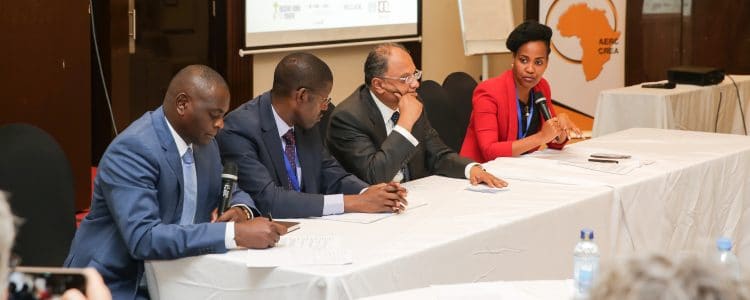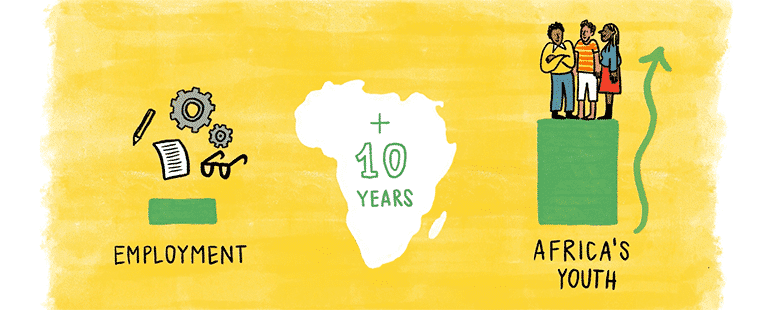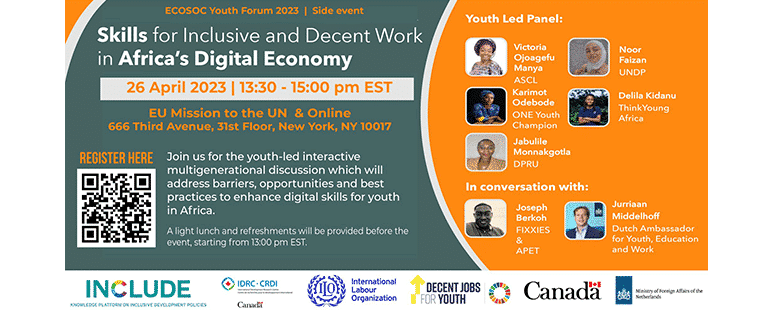
(Nairobi) The world of work is undergoing major structural changes. Work-based learning, soft skills, and skills for jobs in the digital economy are critical to support the transition of young women and men in Africa in the world of work and to align education and training policies and systems with the current and future demands of the labour market. “We must remember, though, that youth are not a homogeneous group”, stressed Marleen Dekker, Coordinator of the INCLUDE Knowledge Platform. Mentoring can help youth to hone their skills, but much remains unknown about how and under which conditions mentoring can successfully facilitate the transition from school to decent work.
Building the capacity of researchers and co-designing research projects to generate rigorous evidence and inform decision making on what works, and why, in youth employment were at the centre of the workshop by the research initiative on ‘Boosting decent employment for Africa’s youth’, which was held on 31 January and 1 February 2019 and hosted by the African Economic Research Consortium (AERC) in Nairobi. This initiative is a joint effort of Canada’s International Development Research Centre (IDRC), the International Labour Organization (ILO) and INCLUDE. It is embedded in the Global Initiative on Decent Jobs for Youth and brings together the expertise, convening power and resources of its partners. “The main goal of the research initiative is to support action-oriented research that will help design effective and innovative interventions that foster economic opportunities for youth in Sub-Saharan Africa”, explained Martha Melesse, IDRC’s program leader.
During the workshop, 11 shortlisted research teams presented their proposals to generate evidence on effective approaches to foster work-based learning programmes and mentorship, and soft skills and digital jobs for youth in 11 African countries: Benin, Ethiopia, Ghana, Kenya, Malawi, Mozambique, Nigeria, Senegal, Tanzania, Uganda and South Africa. In addition to the constructive feedback provided on the proposals by more than 75 researchers and representatives of youth organizations, donor institutions, private sector and government representatives, the research teams benefited from capacity building sessions on how to incorporate gender analysis and how to improve research uptake.
Tackling gender constraints is a crucial aspect to be considered across themes by all the research groups. The capacity building session on gender provided concrete examples of available methodological approaches and tools (including IDRC gender categorization) for conducting robust gender analysis as well as practical suggestions. For instance, one practical suggestion is to consider gendered time-use patterns when planning a training. Overall a key lesson emerging from the presentations was the importance of integrating gender analysis in every step of the research process.
This research initiative focuses on applied research, which aims at, among other things, informing programmes, practices and policies that boost decent employment for Africa’s youth. How to successfully engage with policymakers and inform policies was the focus of the research uptake session. The session highlighted the need for project teams to design research uptake strategies from the outset and to adjust them as needed, taking into account changing realities regarding target audiences and political environments. The presentations emphasised that to achieve policy traction, projects have to be designed with policy questions in mind. “Supporting decision makers across Africa with rigorous evidence on what works, and why, is critical to advance the goal of the Global Initiative on Decent Jobs for Youth, that is to scale up action and impact on youth employment while accelerating progress on the Sustainable Development Goals”, emphasized Susana Puerto, ILO Senior Youth Employment Specialist.









